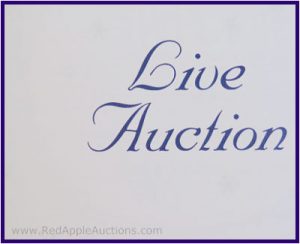 My bilingual and multi-lingual friends are quick to point out that English isn’t the easiest language to learn.
My bilingual and multi-lingual friends are quick to point out that English isn’t the easiest language to learn.
Here’s one example of how language oddities can confuse even the best auction planners.
====================
Back in 2012, I received this email from a Chicago hospital foundation team member.
When I refer to a “LIVE” auction in printed materials, I always put “LIVE” in quotes so that it is not misread as LIVE – the verb for to exist. My supervisor does not like the quotes around “LIVE” and says that when one sees it with the word AUCTION, one immediately reads it as LIVE (the adjective). What do you think? For clarity, is it OK to keep the quotes, or am I over-thinking this point?
She’s not alone in wondering.
On more than one occasion I’ve seen Auction Chairs differentiate the word “live” in some way — either via capitalization or in quotation marks.
====================
Here was my response.
When someone sells POLISH FOOD in their auction, is it written like “POLISH” FOOD it to differentiate it from someone who might like to polish off a plate of food at Thanksgiving?
And when the committee has a MINUTE SIZE 4 RING in the auction, how do you differentiate that from a 60-second minute?
And how do you differentiate between the lead sleigh dog for sale in the live auction, versus that heavy lead bowl in the silent auction?
Reading that, it makes me wonder how anyone masters English. I’m glad it was my native tongue.
====================
As for our hospital foundation employee, she responded with this.
Touché! Thanks so much. I appreciate the difference in perspective. Now I get to tell my supervisor that she was right!! Oh boy!!
In summation, I wouldn’t waste time worrying about whether capitalization or quotes is needed around the phrase.
Leave a Reply